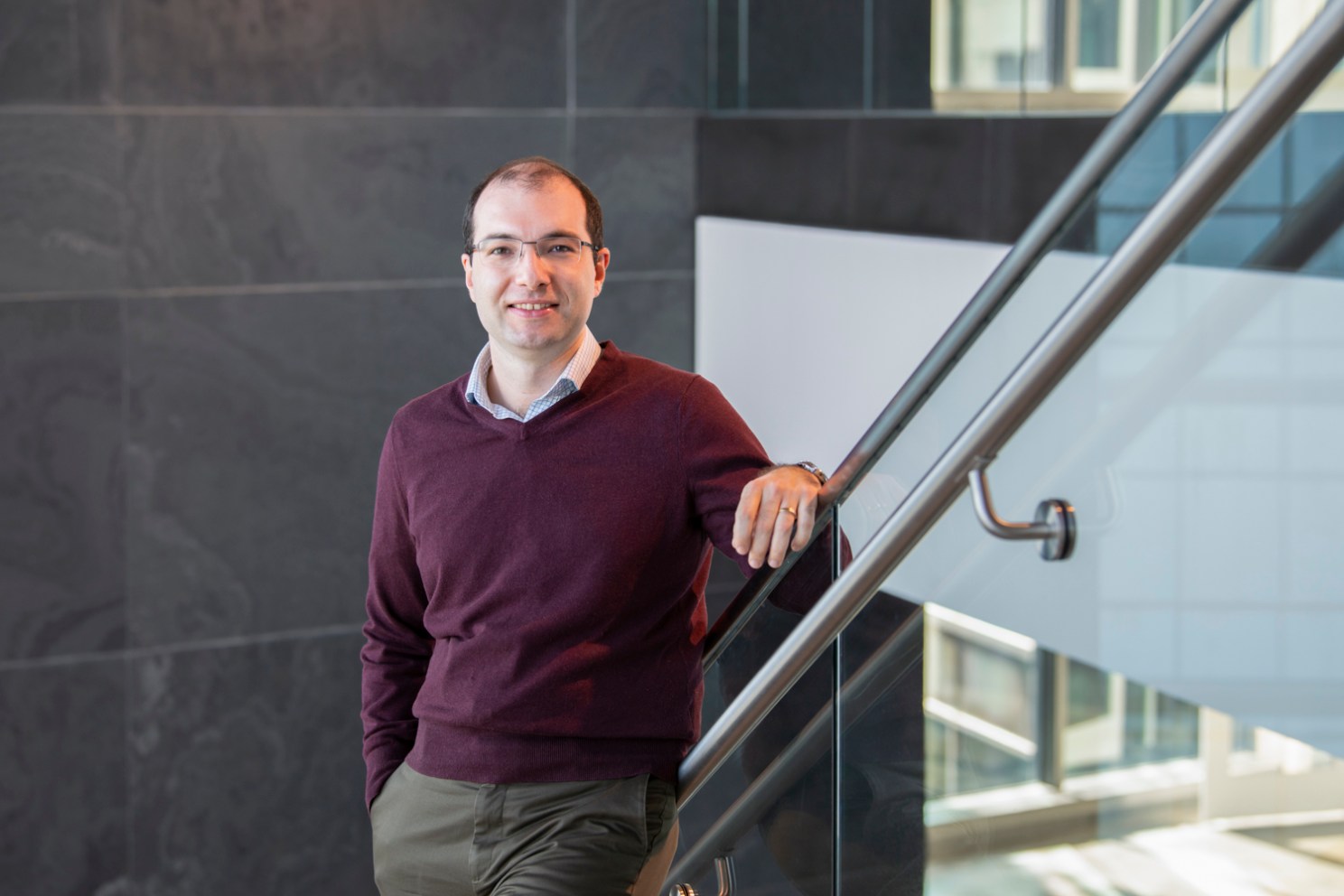Kempner’s Cengiz Pehlevan wins prestigious NSF Career Award

Cengiz Pehlevan studies how networks of neurons compute and learn in both natural and artificial contexts. Photo courtesy of Anna Olivella and the Harvard Brain Science Initiative
Cengiz Pehlevan, an associate faculty member at the Kempner Institute and assistant professor of applied mathematics at Harvard, has been awarded the prestigious NSF Career Award for his project titled “Developing Neural Network Theory for Uncovering How the Brain Learns.” The award is part of the National Science Foundation’s (NSF) Career Program, aimed at supporting early-career faculty who show exceptional promise as researchers and academic role models.
Pehlevan studies how networks of neurons compute and learn in both natural and artificial contexts. Using applied mathematics, he develops testable hypotheses about how neural networks function, and then applies those frameworks to better understand brain data.
While scientists currently use machine learning to analyze large sets of data and identify patterns in brain activity and connectivity, they still don’t understand a great deal about why such patterns exist or what they tell us about how the brain learns. Pehlevan’s theoretical work aims to bridge this gap, allowing for greater understanding about how data are represented in the brain, how synaptic plasticity allows the brain to learn, and why artificial neural networks still outperform current neural network models of the brain in certain tasks.
Prior to joining the Harvard faculty, Pehlevan was a research scientist at the Flatiron Institute’s Center for Computational Biology. Previously, he was a postdoctoral associate at Janelia Research Campus, and before that a Swartz Fellow at Harvard. Pehlevan is a recipient of the 2023 Alfred P. Sloan Research Fellowship in Neuroscience. He received a doctorate in physics from Brown University and undergraduate degrees in physics and electrical engineering from Bogazici University.
About the Kempner Institute
The Kempner Institute seeks to understand the basis of intelligence in natural and artificial systems by recruiting and training future generations of researchers to study intelligence from biological, cognitive, engineering, and computational perspectives. Its bold premise is that the fields of natural and artificial intelligence are intimately interconnected; the next generation of artificial intelligence (AI) will require the same principles that our brains use for fast, flexible natural reasoning, and understanding how our brains compute and reason can be elucidated by theories developed for AI. Join the Kempner mailing list to learn more, and to receive updates and news.




